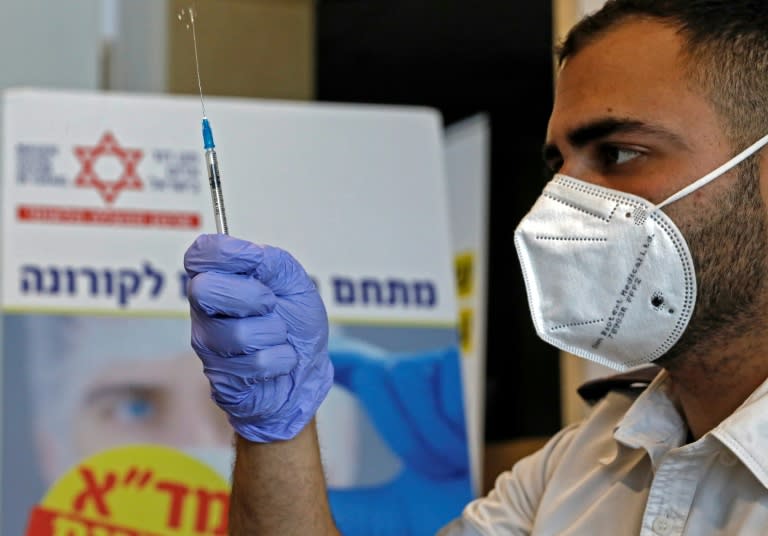Israel’s parliament passed a law on Wednesday that allows the government to share the identities of people not vaccinated against the coronavirus with other officials, raising privacy concerns for those who choose not to do the inoculation.
The measure, which was approved with 30 votes in favor and 13 against, gives local governments, the director-general of the Ministry of Education and some of the Ministry of Social Security the right to receive names, addresses and phone numbers from unvaccinated citizens.
The aim of the measure – valid for three months or until the Covid-19 pandemic is declared over – is “to allow these bodies to encourage people to get vaccinated in person,” said a parliament statement.
Israel, a country of nine million, has administered the two recommended jabs of the Pfizer / BioNTech vaccine against coronavirus to about a third of its population.
As it comes out of the blockade, the country is restricting certain services, including access to indoor gyms and restaurants, to vaccinated people only, giving the so-called green pass to those who are fully vaccinated.
This also raised concerns about inequality of access for those who exercise their right not to be vaccinated.
During the debate over the measure, Labor Party leader Merav Michaeli accused right-wing prime minister Benjamin Netanyahu of “denying citizens the right to the privacy of their medical information”.
The parliament statement, or Knesset, said that personal information cannot be used for any purpose other than to encourage people to be vaccinated.
“The information will be deleted after its use within 60 days”, according to the law, and “a person who has been contacted may require that their data be deleted and that they are not contacted again”.
Haim Katz, of the Netanyahu Likud party, defended the law as a means of promoting vaccination.
“I was asked about people’s privacy: is privacy more important than life itself?” Katz said in parliament, emphasizing that the information would include nothing but the question of whether the person was vaccinated or not.
At a news conference, Netanyahu later asked Israeli citizens to be vaccinated to “return to normal life”.
The prime minister deplored misleading news about the vaccine and said Israel intended to fully inoculate 6.2 million people before the beginning of April.
“More than a million adults have not yet been vaccinated,” he said, adding that “in the world people are waiting for vaccines, (but) here vaccines are waiting for people.”
Israel has officially registered more than 760,000 cases of coronavirus and more than 5,600 deaths since the pandemic began.
jjm / bs / dv / dwo
